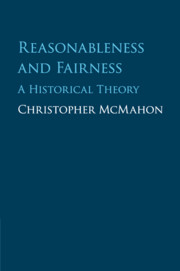Book contents
4 - Proper Functioning and Practical Judgment
from Part II - The History of Reciprocal Concern
Published online by Cambridge University Press: 24 November 2016
Summary
There may be some plausibility to realist accounts of the morality of direct concern. Thus Thomas Nagel has argued for the impersonal badness of pain, for the idea that not just our own pain but anyone's pain provides us with a reason for ameliorating action. But realist accounts of the morality of reciprocal concern are more problematic. For metaethical realists, a judgment employing one of the concepts of the morality of reciprocal concern will be an attempt to represent a fact consisting in the possession, by a pattern of interaction within a group, of an objective normative property of a certain kind. The resulting metaethical picture will thus be more complicated than that associated with a realist account of the badness of a simple mental state like pain.
To say that a realist account of the morality of reciprocal concern would be more complicated than a realist account of the morality of direct concern is not to say that no such account can be provided. To take the example of fairness, I have proposed that it consists in appropriate concession in an ongoing cooperative endeavor, where concession is understood to be appropriate when disparities of concession have been eliminated. A realist view could posit the objective to-be-avoidedness of such disparities of concession while admitting that what constitutes a disparity of concession can change over time, giving fairness a historical character of a sort. But I believe that the morality of reciprocal concern fits more comfortably with an antirealist, and in particular a constructivist, metaethics. This approach enables us to explain why disparities of concession loom large in moral thought by invoking the motivational disposition that I have posited, and to attribute the historicity of the morality of reciprocal concern to the evolution of senses of fairness grounded in this disposition. The morality of reciprocal concern has a history because senses of fairness, and justice, evolve as people encounter new natural and social environments.
In this short chapter, I begin the presentation of my historical metaethics of the morality of reciprocal concern by introducing and explaining the fundamental normative concept employed by my theory, proper functioning. The first part of the chapter provides a general account of the normativity of proper functioning; the second extracts from this an account of practical judgment.
Information
- Type
- Chapter
- Information
- Reasonableness and FairnessA Historical Theory, pp. 135 - 150Publisher: Cambridge University PressPrint publication year: 2016
